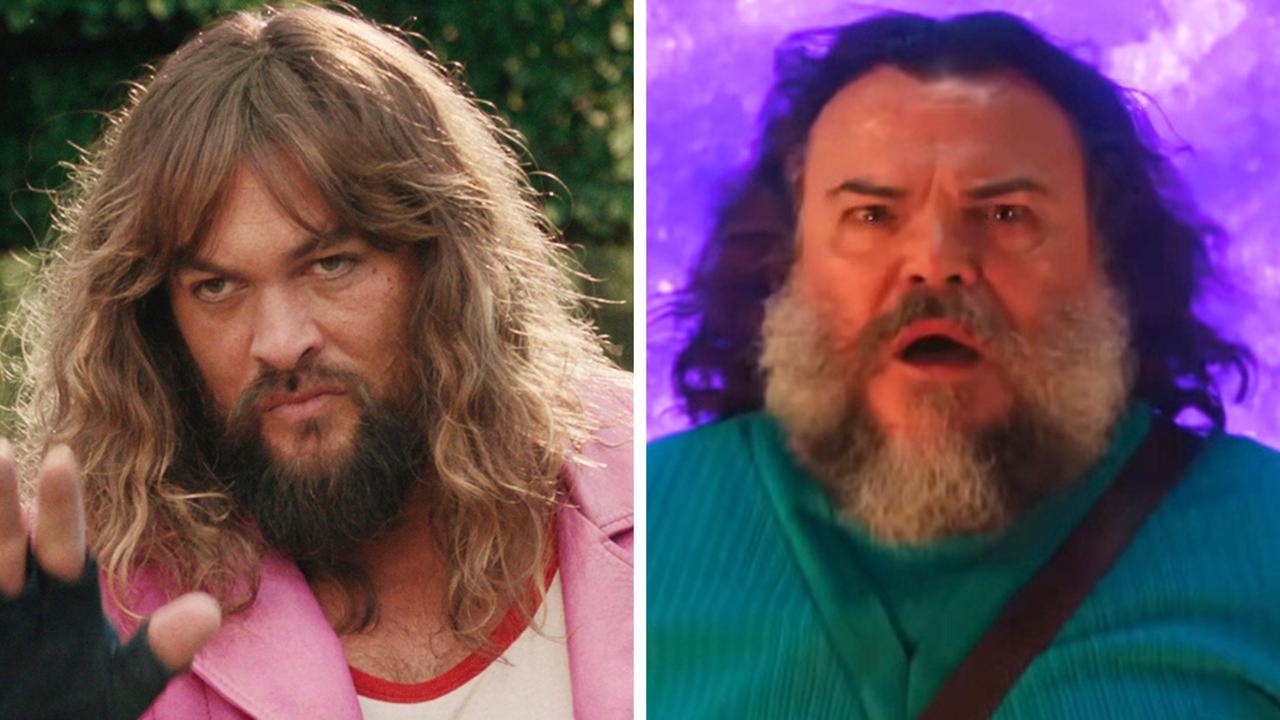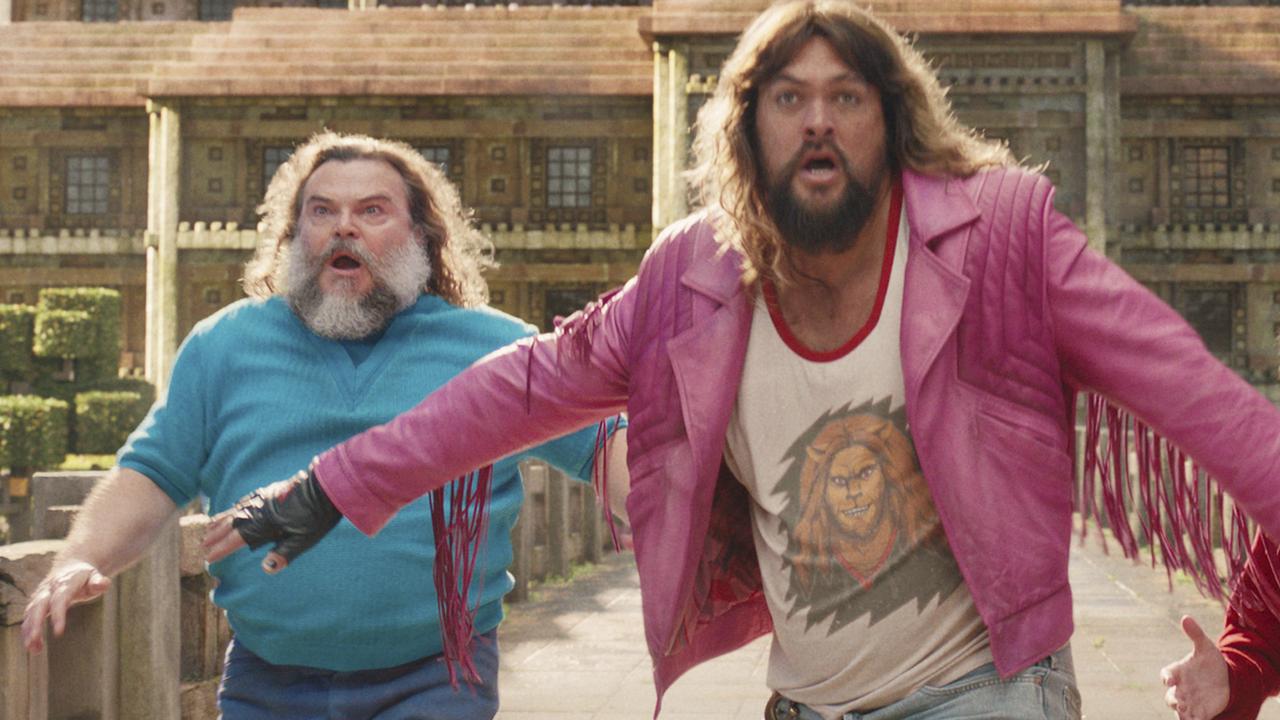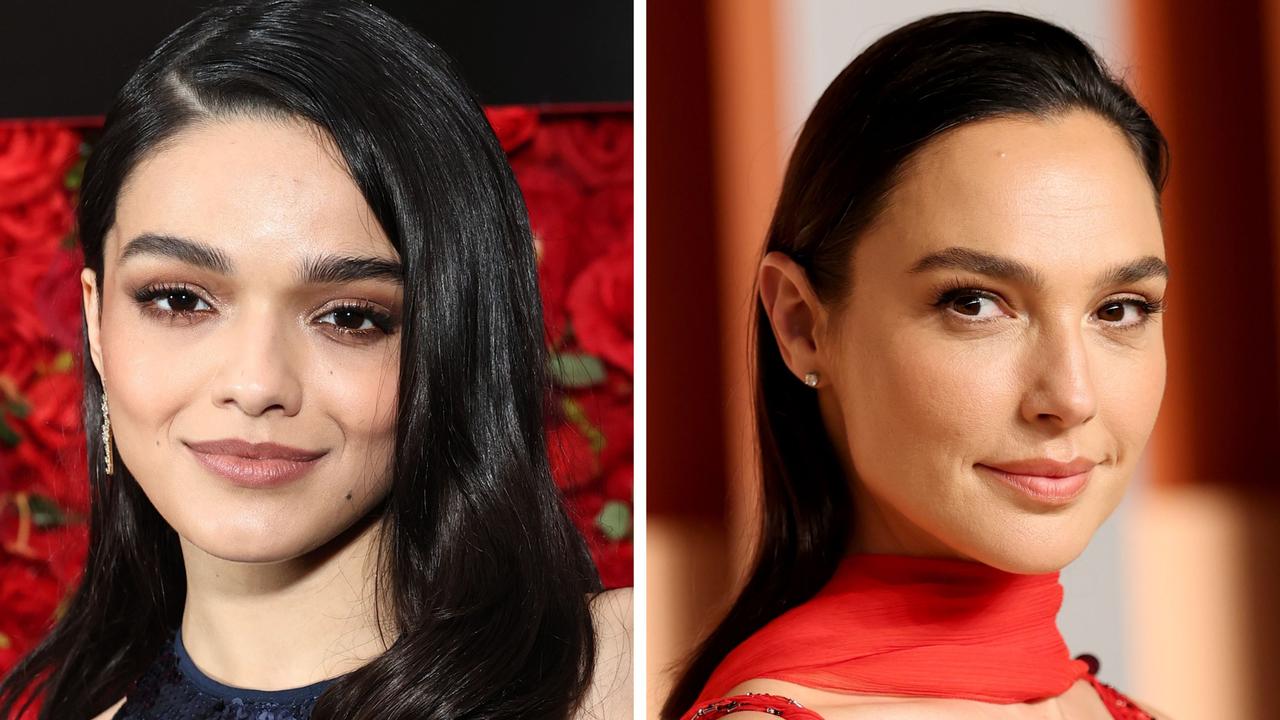Why Ethan Hawke changed his mind about The Black Phone
When Ethan Hawke was first pitched the idea for his latest role, he didn’t want a bar of it. But then he changed his mind.
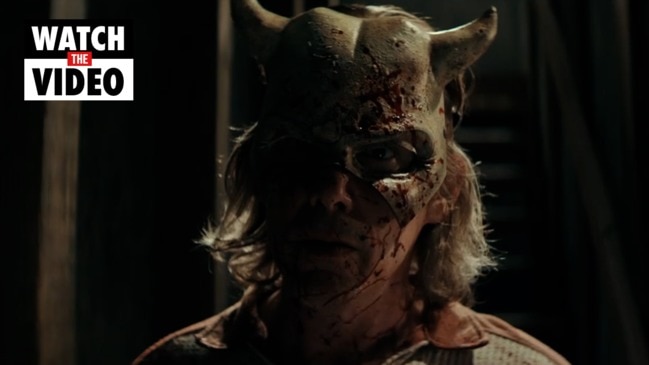
Throughout his 37-year career, Ethan Hawke has done everything.
With a knack for picking interesting and unexpected roles, Hawke has played the gamut of characters from the romantic lead in Richard Linklater’s Before trilogy, the tortured priest in Paul Schrader’s First Reformed to a doomed cowboy in the Magnificent Seven remake.
He’s even appeared in animated form, with a rotoscoped cameo in Waking Life.
But Hawke hasn’t quite tackled a challenge like his latest role, as the masked serial killer in The Black Phone, a chilling horror-thriller which reunites him with his Sinister director, Scott Derrickson.
Set in Colorado in the 1970s, the story takes place in a besieged town dealing with a spate of abducted children. When teenage boy Finney becomes The Grabber’s latest victim, he has to fight his way out a locked basement. The last thing he expects is for the disconnected phone on the wall to start ringing.
Hawke’s performance as The Grabber is menacing, creepy and vulnerable, and it’s quite a feat to convey all those aspects when the actor doesn’t have the use of his face, hidden behind a series of increasingly chilling masks. You never get to see Hawke’s famous visage, and it’s only his voice that you recognise.
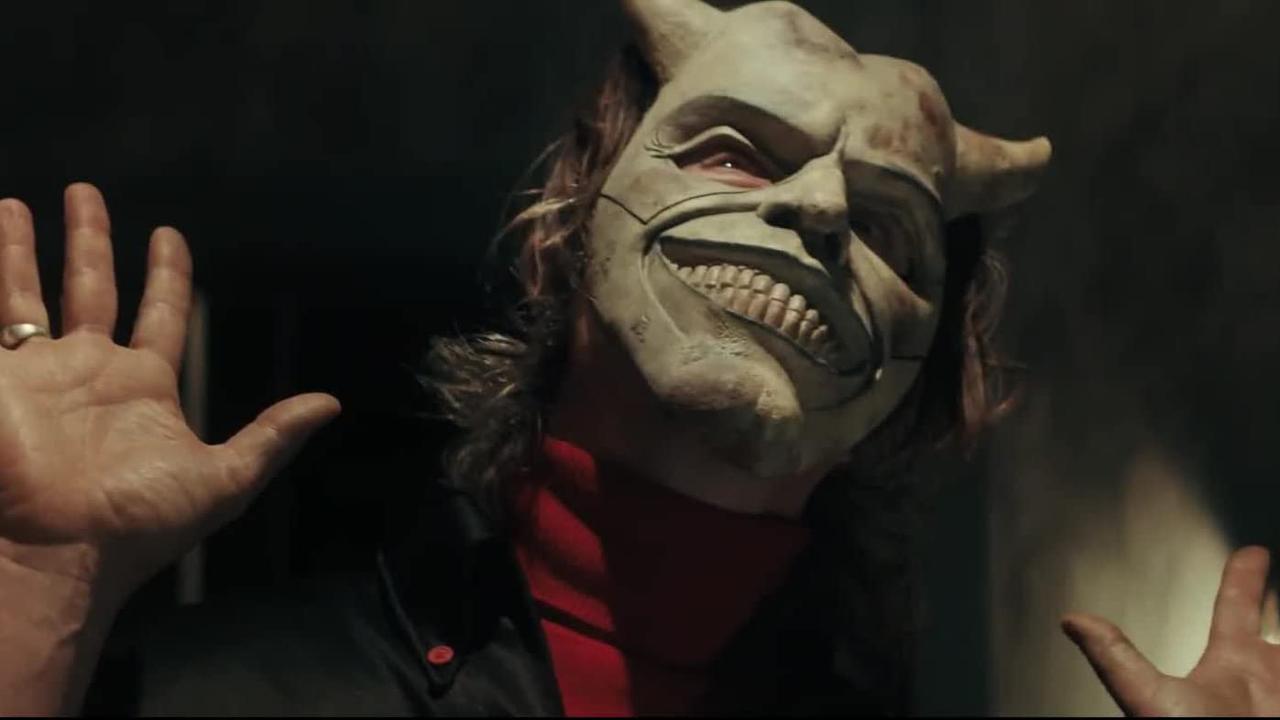
It’s the kind of film and the kind of performance that will stick in the cultural consciousness, a cinematic bogeyman to haunt our nightmares. And to think, Hawke didn’t want to take the role.
He sat down with news.com.au to have a chat about what made him change his mind, the challenges of a playing a masked demon and wanting to work with his daughter Maya.
Scott Derrickson told me last year that you had originally turned him down but then he sent you the script and you left him a voicemail for him in character as The Grabber. What did you see in the script that made you change your mind?
I really wanted to work with Scott again after Sinister so I was happy when he approached me with the script. But then he told me about it and that I would be playing someone who abducts and kills children. And I was like, ‘Scott, I don’t want to play that guy’.
He said, ‘Will you read it’ and I said, ‘Yeah, I’ll read it but I just want to warn you that’s the kind of character that doesn’t interest me’.
I read it and the movie is very different than I think people think it is. Because it is terrifying and it has this great ghost story element and serial killer element. But at its core, it’s really about how kids grow up.
It’s a coming-of-age story about growing up and learning to survive by taking care of yourself. The brother-and-sister storyline was also so moving to me that I wanted to help him get the movie made.

So your decision ended up being more about the other roles than it was about The Grabber itself?
Yeah. Part of the joy of [playing a supporting character] is helping facilitate the hero’s journey.
I knew it was a new character for me and exactly the reason why I didn’t want to play it is why people would think I wouldn’t play it. And maybe it would be an exciting change of pace for me – to put myself in a situation to do something I’d never done before.
The mask element was really exciting and weird, and I felt like taking on a challenge. I’d done a little mask work in drama school while studying Greek theatre. Everything becomes about the voice and the body language. I thought that could be a unique challenge.
It felt like, ‘I guess this is where the universe wants me to go’.
The masks struck me as being like commedia dell’arte, and you get to work with different parts of masks – sometimes the top of your face is exposed, sometimes it’s the bottom and sometimes it’s none. What was it like working with them when they’re different each time?
What you realise is that the character I’m playing is giving a performance himself. He has a fake name, he’s wearing these masks and he’s playing hide and seek with his victim and revealing aspects of himself at different times.
That started to dictate the performance. It was surprisingly fun once I got into it, because the masks were so interesting and changed all the behaviour that I imagined I would do.
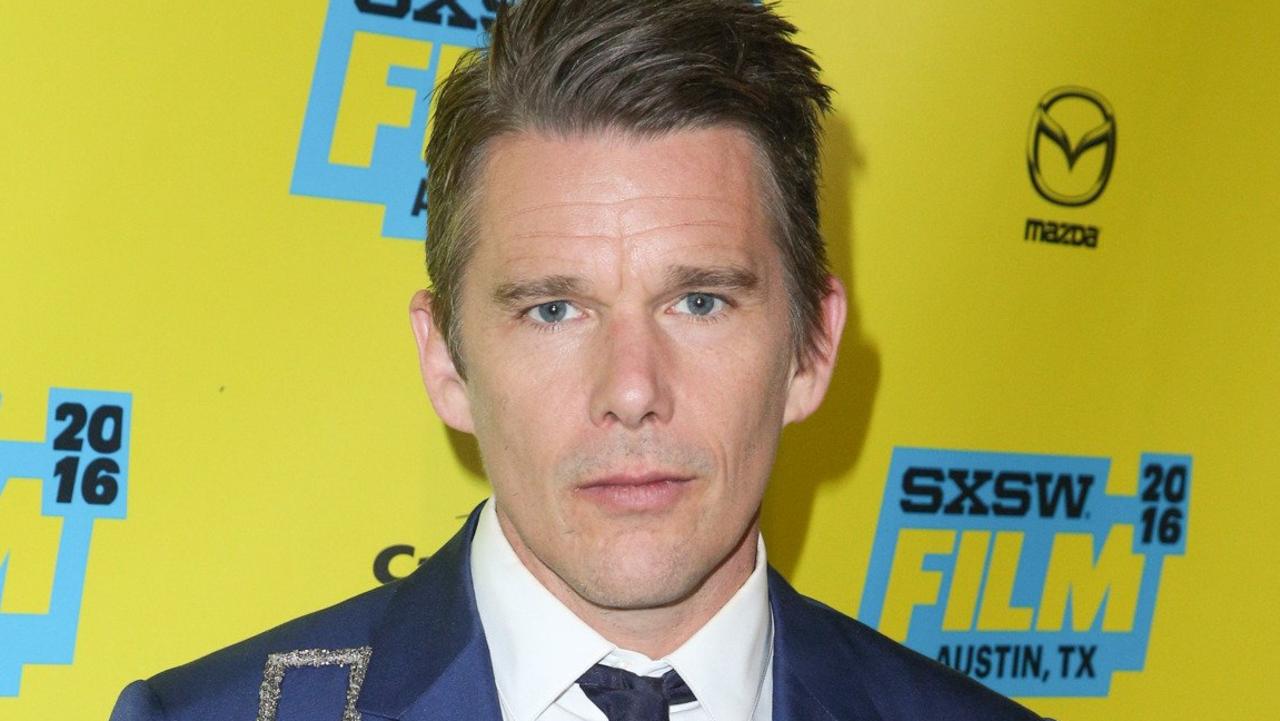
Scott said he was channelling experiences from his childhood when he wrote The Black Phone. Did you bring any of your experiences to the role, or was it based on anyone you knew?
I hope not! For me, when you’re telling a scary story, you’re trying to conjure dream language and go deep into people’s psyche in what they’re most afraid of. And one of the things we’re most afraid of is being powerless or someone preying on the weak – especially on the young, that’s terrifying to us.
And that mask in some primal way looks like an ancient devil figure. You’re not playing an old school sense of that character, it’s more an embodiment of fear. You have to go on a dream quest.
I know some parents have walked out of some screenings because they couldn’t handle kids being put in peril.
We all have things that we’re really afraid of that we can’t even think about. What I love about the movie is it’s about children surviving and learning they can take agency for themselves, a brother and sister taking care of each other.
A lot of children feel powerless and feel like adults do not have their best wishes at heart. In a lot of ways, The Grabber represents the older generation attacking a younger generation, whether it’s parents or teachers not protecting kids at school. They don’t feel sage and this is a story in which they learn to take care of themselves.
That’s why I think parents should stick through it. Kids are stronger than you think.
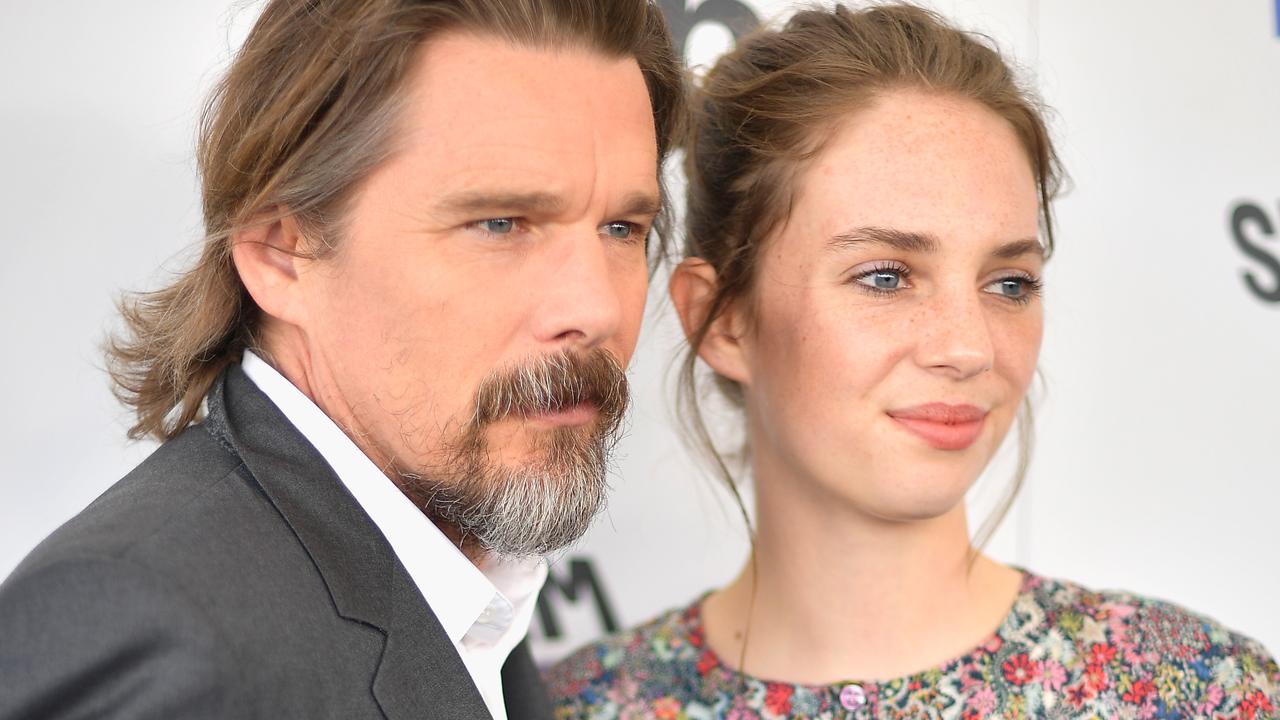
How do you feel about being a figure of people’s nightmares?
If you live long enough in the life of an actor, you have different stages and you can be the young ingenue, you can be the figure of people’s imaginative romance, you can be the joke, you can be the action hero and you’ve got to be the demon sometimes too.
Is that the stage you’re in right now?
Sure seems like it.
Arthur Harrow in Moon Knight was terrifying as well.
He was terrifying! But in The Northman, I got to be a benevolent king. So the lord giveth and the lord taketh away.
I loved The Good Lord Bird. What else are you working on that’s your own thing?
The Good Lord Bird is one of my favourite things I’ve ever done.
I’m trying to develop a couple of projects. I really want to act with my daughter, Maya. So we’re developing some things together.
I’m always working on a handful of different things. I’m finishing a movie with Julia Roberts right now, so that should be fun.
The Black Phone is in cinemas now


